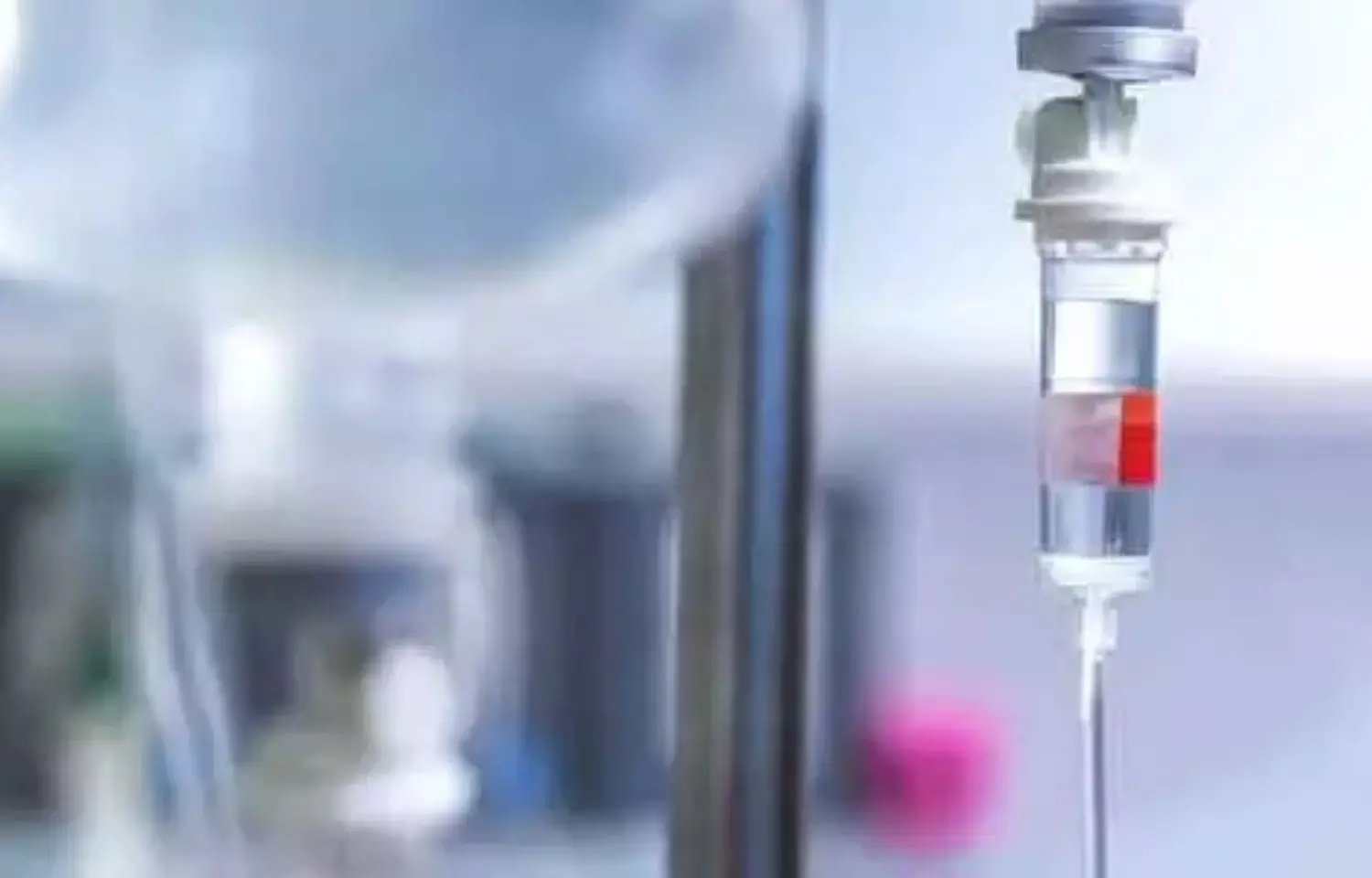- Home
- Medical news & Guidelines
- Anesthesiology
- Cardiology and CTVS
- Critical Care
- Dentistry
- Dermatology
- Diabetes and Endocrinology
- ENT
- Gastroenterology
- Medicine
- Nephrology
- Neurology
- Obstretics-Gynaecology
- Oncology
- Ophthalmology
- Orthopaedics
- Pediatrics-Neonatology
- Psychiatry
- Pulmonology
- Radiology
- Surgery
- Urology
- Laboratory Medicine
- Diet
- Nursing
- Paramedical
- Physiotherapy
- Health news
- Fact Check
- Bone Health Fact Check
- Brain Health Fact Check
- Cancer Related Fact Check
- Child Care Fact Check
- Dental and oral health fact check
- Diabetes and metabolic health fact check
- Diet and Nutrition Fact Check
- Eye and ENT Care Fact Check
- Fitness fact check
- Gut health fact check
- Heart health fact check
- Kidney health fact check
- Medical education fact check
- Men's health fact check
- Respiratory fact check
- Skin and hair care fact check
- Vaccine and Immunization fact check
- Women's health fact check
- AYUSH
- State News
- Andaman and Nicobar Islands
- Andhra Pradesh
- Arunachal Pradesh
- Assam
- Bihar
- Chandigarh
- Chattisgarh
- Dadra and Nagar Haveli
- Daman and Diu
- Delhi
- Goa
- Gujarat
- Haryana
- Himachal Pradesh
- Jammu & Kashmir
- Jharkhand
- Karnataka
- Kerala
- Ladakh
- Lakshadweep
- Madhya Pradesh
- Maharashtra
- Manipur
- Meghalaya
- Mizoram
- Nagaland
- Odisha
- Puducherry
- Punjab
- Rajasthan
- Sikkim
- Tamil Nadu
- Telangana
- Tripura
- Uttar Pradesh
- Uttrakhand
- West Bengal
- Medical Education
- Industry
Appropriate fluid therapy for resuscitation of critically ill patients: French Guidelines

France: A recent article, published in the journal Anaesthesia Critical Care & Pain Medicine, reports recommendations for the appropriate choice of fluid therapy for the resuscitation of critically ill patients.
For developing the guideline, a consensus committee of 24 experts from the French Society of Anaesthesia and Intensive Care Medicine (Société française d'anesthésie et de réanimation, SFAR) and the French Society of Emergency Medicine (Société française de médecine d'urgence, SFMU) was convened. The authors followed the principles of the Grading of Recommendations Assessment, Development and Evaluation (GRADE) system to guide their assessment of the quality of evidence.
Key recommendations are as follows:
- In comparison with non-hypertonic crystalloids, it is not recommended in case of sepsis or septic shock to use hydroxyethyl starch as fluid therapy to reduce mortality and/or renal replacement therapy requirement.
- In comparison with non-hypertonic crystalloids, the experts suggest that in cases of sepsis or septic shock, gelatins should not be used as fluid therapy to reduce mortality and/or renal replacement therapy requirement.
- In comparison with crystalloids, it is probably not recommended in cases of sepsis or septic shock to use albumin as first-line treatment to reduce mortality or renal replacement therapy requirement.
- In patients with sepsis or septic shock, it is probably recommended to use balanced crystalloids for fluid resuscitation (rather than 0.9% NaCl), the objective being to reduce mortality and/or occurrence of adverse renal events.
- In patients with hemorrhagic shock, whatever the context, it is probably not recommended, in comparison with non-hypertonic crystalloids, to use a colloid solution as fluid therapy to reduce mortality and/or renal replacement therapy requirement.
- In patients with hemorrhagic shock, it is probably recommended to use balanced crystalloids rather than 0.9% NaCl as first-line fluid therapy to reduce mortality and/or adverse renal events.
- In patients with hemorrhagic shock, it is not recommended in first-line treatment to administer as fluid therapy a 3% or 7.5% hypertonic solution to reduce mortality.
- In acute brain injury patients, it is probably not recommended to use colloids, particularly albumin, as fluid therapy to reduce mortality and/or to improve the neurological prognosis.
- It is probably recommended, to use isotonic crystalloids as first-line fluid therapy in patients with acute brain injury to reduce mortality and/or to improve the neurological prognosis.
- Due to the absence of available data in the literature, no specific recommendation can be issued concerning the choice of fluid therapy to be utilized in volume resuscitation of women during the peripartum period.
"Substantial agreement among experts has been obtained to provide a sizable number of recommendations aimed at optimizing the choice of fluid therapy for resuscitation of critically ill patients," the authors conclude.
Reference:
Joannes-Boyau O, Le Conte P, Bonnet MP, Cesareo E, Chousterman B, Chaiba D, Douay B, Futier E, Harrois A, Huraux C, Ichai C, Meaudre Desgouttes E, Mimoz O, Muller L, Oberlin M, Peschanski N, Quintard H, Rousseau G, Savary D, Tran-Dinh A, Villoing B, Chauvin A, Weiss E. Guidelines for the choice of intravenous fluids for vascular filling in critically ill patients, 2021. Anaesth Crit Care Pain Med. 2022 Jun;41(3):101058. doi: 10.1016/j.accpm.2022.101058. Epub 2022 May 5. PMID: 35526312.
Dr Kamal Kant Kohli-MBBS, DTCD- a chest specialist with more than 30 years of practice and a flair for writing clinical articles, Dr Kamal Kant Kohli joined Medical Dialogues as a Chief Editor of Medical News. Besides writing articles, as an editor, he proofreads and verifies all the medical content published on Medical Dialogues including those coming from journals, studies,medical conferences,guidelines etc. Email: drkohli@medicaldialogues.in. Contact no. 011-43720751


